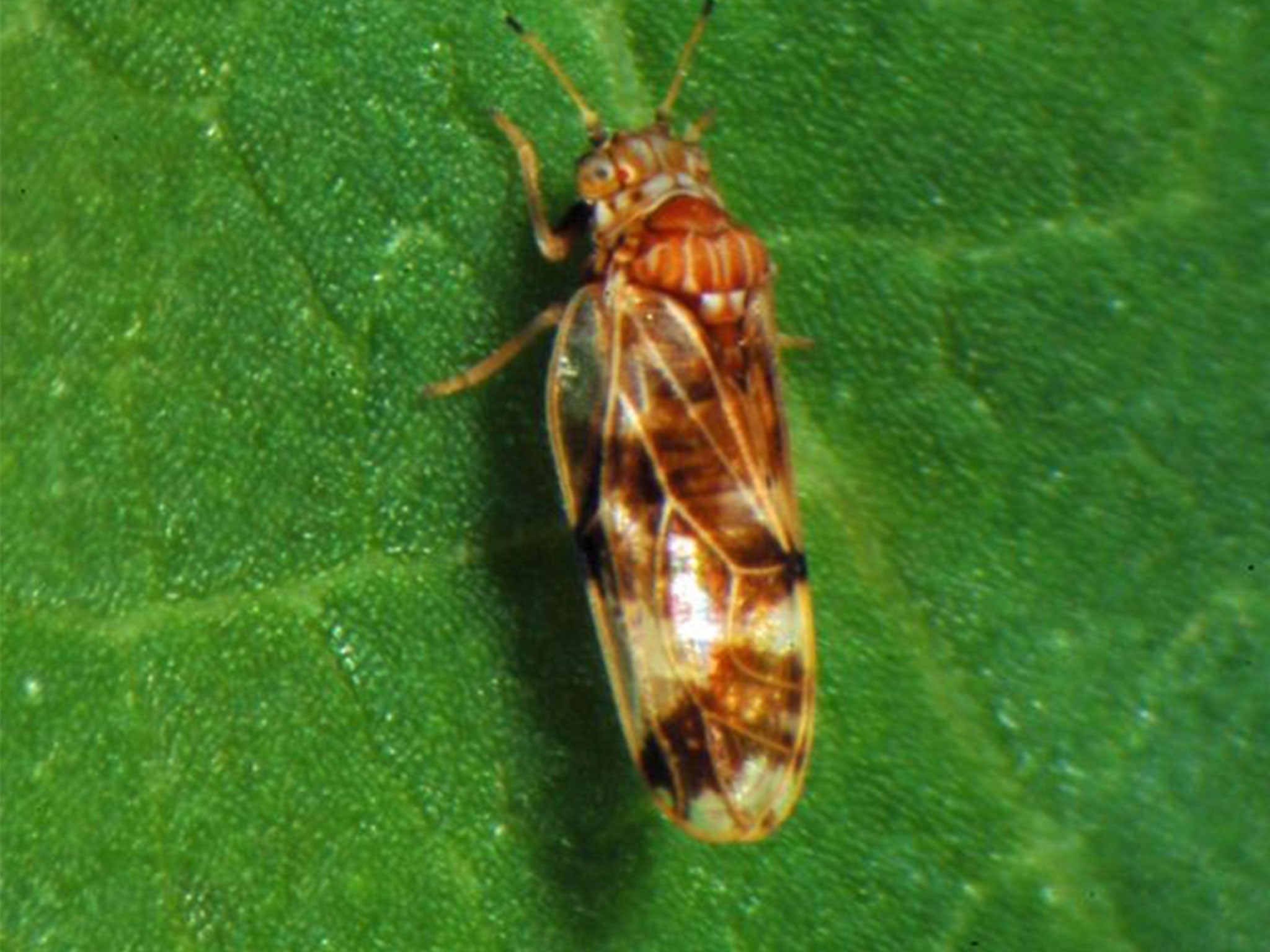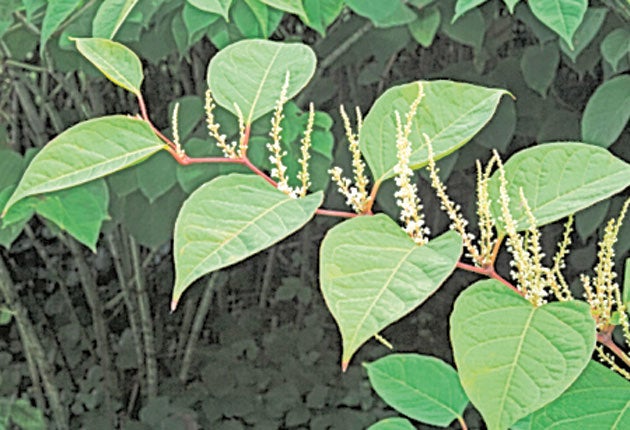Japanese knotweed: Tiny insect could finally tame Britain's most invasive plant
Plant louse found to inhibit rapid growth of the knotweed

Your support helps us to tell the story
From reproductive rights to climate change to Big Tech, The Independent is on the ground when the story is developing. Whether it's investigating the financials of Elon Musk's pro-Trump PAC or producing our latest documentary, 'The A Word', which shines a light on the American women fighting for reproductive rights, we know how important it is to parse out the facts from the messaging.
At such a critical moment in US history, we need reporters on the ground. Your donation allows us to keep sending journalists to speak to both sides of the story.
The Independent is trusted by Americans across the entire political spectrum. And unlike many other quality news outlets, we choose not to lock Americans out of our reporting and analysis with paywalls. We believe quality journalism should be available to everyone, paid for by those who can afford it.
Your support makes all the difference.Fallopia japonica, the one-time toast of Victorian horticulture which under its English name of Japanese knotweed is now considered Britain’s most pernicious invasive plant, may have finally met its match in a two millimetre-long insect.
The shrub plucked from the sides of Japanese volcanoes in the 19th century and imported to Europe as a medal-winning ornamental has become a botanical menace, resisting chemical control and causing £170m of damage to buildings each year as it forces its way through concrete and brickwork.
Scientists who have spent the last four years studying one of the plant’s natural predators believe they may have hit upon of a method of taming the floral thug by unleashing a tiny sap-sucking insect upon it on test sites across the country.
Painstaking trials on the bug, Aphalara itadori, which is a psyllid or plant louse similar to aphids, have established that it inhibits the growth of the knotweed and, most importantly, poses no risk to native species, including close relatives of the oriental plant such as rhubarb.
Researchers at CABI, a not-for-profit international research body specialising in agriculture and the environment, announced that they have also succeeded in getting the insect to survive through British winters.
The findings raise the possibility for wide-scale release of the specialist knotweed nibbler and the potential for its target host to be slowly but surely brought under control at a vastly reduced cost compared to artificial eradication methods.
Kate Constantine, one of the CABI scientists working on the project, said: “The results confirmed the psyllid to be a high-specialised natural enemy of Japanese knotweed. The challenge now is to get the psyllid to establish in the natural environment which, as for any programme of this type, isn’t easy.”

A natural means of controlling knotweed would be a huge advance in the battle against the plant, which every year damages hundreds of homes and invades urban land. Just a few millimetres of its underground root or rhizome is sufficient to spawn a new plant, making its removal from soil time-consuming and expensive.
The Government last year faced calls to do more to tackle the invader following reports that banks were refusing to offer mortgages on properties affected by knotweed.
The CABI research, which involved placing tens of thousands of specially-bred lice on knotweed at eight locations in England and Wales, was the first time the release of an alien insect species had been authorised in the European Union.
The study found that the creature was happy to suck on the sap of the knotweed, inhibiting its growth, but also failed to breed on any of 90 other native British species, meaning it can be specifically targeted at the invasive plant.
The scientists say the number of colonies that have successfully over-wintered remains too small to be certain that the bug could widely establish itself in Britain. But if it does, they believe the bug will allow a natural order to slowly reassert itself and knotweed could eventually be seen as just a “mild nuisance”.
Dr Constantine, writing in The Ecologist, said: “A more natural equilibrium is restored. Biological control doesn’t aim to eradicate the target plant, but rather to reduce its vigour and invasiveness. Keeping the invasive plant in check ideally allows native plants to re-establish and flourish.”
Join our commenting forum
Join thought-provoking conversations, follow other Independent readers and see their replies
Comments